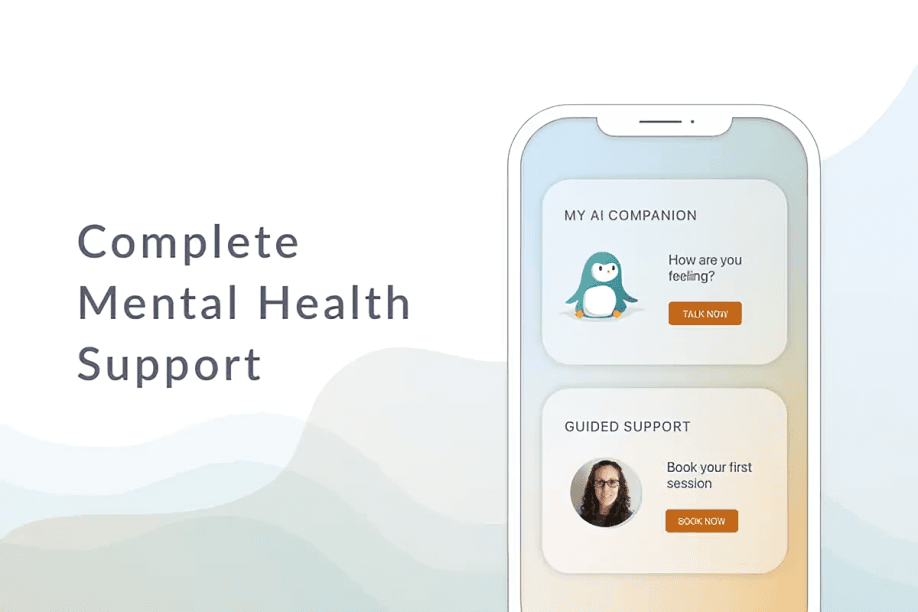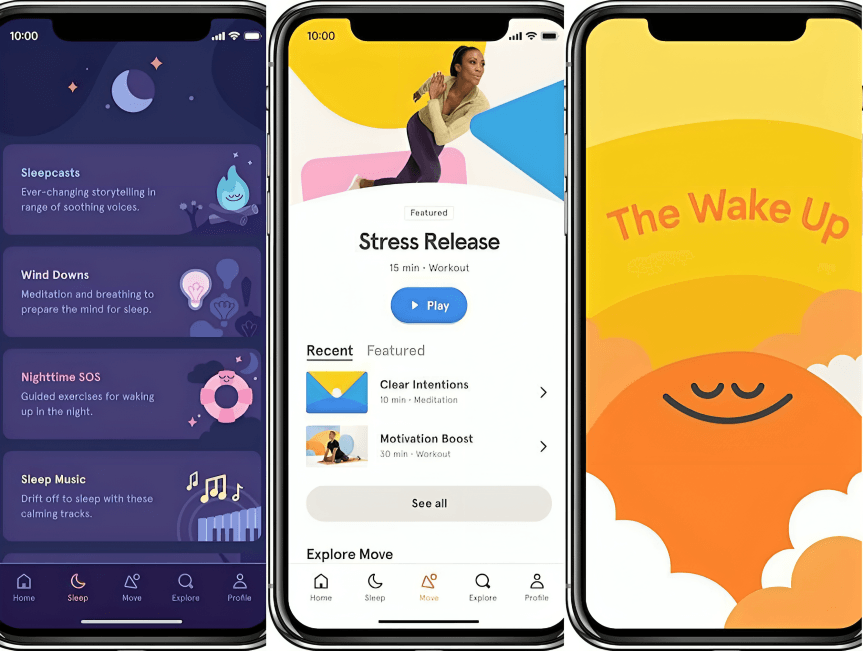
“
The role of AI & apps in mental wellness is rapidly evolving, offering innovative ways to support emotional and psychological health. With AI’s growth, mental wellness apps provide tailored interventions, real-time monitoring, and instant support, transforming traditional mental health approaches into more accessible, proactive solutions.1
1
”
Philosopher Alan Turing’s pioneering ideas on machine intelligence laid the foundation for AI tools now used in mental wellness, helping simulate human-like interactions in therapy and emotional support apps. 1
AI-powered mental wellness apps analyze users’ speech and text patterns to detect early signs of anxiety or depression, enabling timely interventions before conditions worsen. 2

Apps using AI personalize mental health exercises based on user behavior, adjusting mindfulness and cognitive-behavioral therapy techniques to maximize effectiveness for individual users.
Chatbots powered by AI provide accessible emotional support anytime, helping those reluctant to seek face-to-face therapy due to stigma or logistical challenges by offering immediate, confidential assistance. 3
Machine learning models process extensive data to anticipate mood changes or emotional crises, alerting users and caregivers in advance to intervene effectively before conditions deteriorate. 4
AI-driven mental wellness tools streamline therapists’ workload by automating routine assessments and monitoring, allowing professionals to dedicate more time to complex, personalized patient care. 5
Guided meditation and relaxation features in apps are enhanced by AI, which customizes sessions based on users’ evolving emotional states, helping reduce anxiety and promote sustained mental calm. 6
Combining AI with virtual reality, immersive therapeutic environments simulate controlled exposures to fears or traumas, aiding in the treatment of PTSD, phobias, and anxiety disorders with high effectiveness. 7
AI algorithms scan social media content for signs of suicidal ideation or severe emotional distress, enabling mental health organizations to offer timely outreach and crisis intervention for vulnerable individuals. 8

Gamification in mental wellness apps, driven by AI, motivates users to maintain engagement with therapeutic exercises by tracking progress and encouraging consistent practice for better outcomes.
Journaling features in mental wellness apps use AI to provide tailored feedback and coping suggestions based on users’ written emotions, enhancing self-awareness and emotional regulation. 9
AI-powered reminders in mental wellness apps improve treatment adherence by encouraging users to take medications on time, practice coping skills, and attend therapy appointments. 10
The role of AI & apps in mental wellness is vital in reaching underserved or rural populations, providing remote access to mental health support when local resources are limited or unavailable. 11
Some AI systems are specifically designed to detect early signs of bipolar disorder by analyzing mood patterns, behavioral data, and speech, helping clinicians intervene with timely, tailored treatment. 12
AI and apps significantly reduce the cost of mental health care by automating certain support functions and increasing accessibility, making effective therapy more affordable and scalable worldwide. 13

AI-driven analysis of voice pitch, typing speed, and speech patterns over time helps detect subtle cognitive changes or emotional distress, offering early warnings for potential mental health issues.
Research indicates AI mental wellness tools effectively complement traditional therapy methods, enhancing treatment outcomes when used alongside human professionals rather than as replacements. 14
Addressing privacy, many mental wellness apps employ AI to encrypt sensitive personal data and ensure confidentiality, which is critical in building trust and encouraging user engagement. 15
AI enables mental health apps to provide multilingual support with culturally sensitive content, breaking down language barriers and making mental wellness accessible to diverse global populations. 16
Psychologist Carl Rogers emphasized empathy and genuine human connection in therapy; modern AI-based mental wellness apps attempt to replicate this through natural conversational design.17


